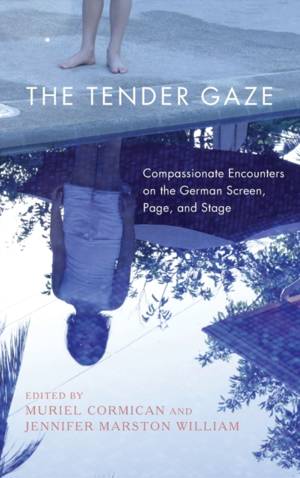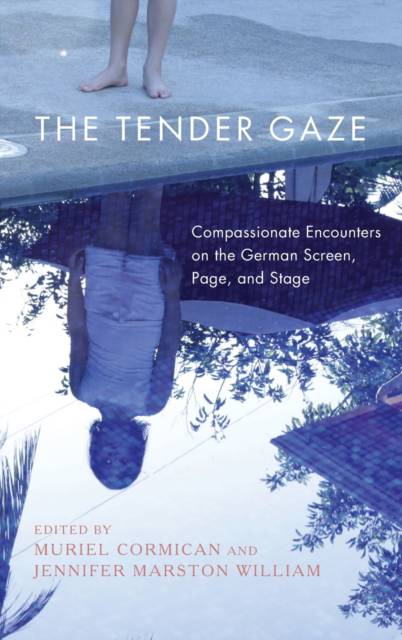
- Retrait gratuit dans votre magasin Club
- 7.000.000 titres dans notre catalogue
- Payer en toute sécurité
- Toujours un magasin près de chez vous
- Retrait gratuit dans votre magasin Club
- 7.000.0000 titres dans notre catalogue
- Payer en toute sécurité
- Toujours un magasin près de chez vous
The Tender Gaze
Compassionate Encounters on the German Screen, Page, and Stage
177,45 €
+ 354 points
Description
By exploring the concept of the "tender gaze" in German film, theater, and literature, this volume's contributors illustrate how perspective-taking in works of art fosters empathy and prosocial behaviors.
The gaze, understood as a way of looking at others that involves contemplation and the operation of power, has an extensive history of iterations such as the male gaze (Mulvey), the oppositional gaze (hooks), and the postcolonial gaze (Said). This essay collection develops a supplemental theory of what Muriel Cormican has coined the "tender gaze" and traces its occurrence in German film, theater, and literature. More than qualifying the primarily voyeuristic, narcissistic, and sexist impetus of the male gaze, the tender gaze also allows for a differentiated understanding of the role identification plays in reception, and it highlights various means of eliciting a sociopolitical critique in works of art. Emphasizing the humanizing potential of the tender gaze, the contributors argue that far from simply exciting emotional contagion, affect in art promotes an altruistic, rational, and fundamentally ethical relationship to the other. The tender gaze elucidates how perspective-taking operates in art to foster empathy and prosocial behaviors. Though the contributors identify instances of the tender gaze in artistic production since the early nineteenth century, they focus on its pervasiveness in contemporary works, corresponding to twenty-first-century concerns with implicit bias and racism.
The gaze, understood as a way of looking at others that involves contemplation and the operation of power, has an extensive history of iterations such as the male gaze (Mulvey), the oppositional gaze (hooks), and the postcolonial gaze (Said). This essay collection develops a supplemental theory of what Muriel Cormican has coined the "tender gaze" and traces its occurrence in German film, theater, and literature. More than qualifying the primarily voyeuristic, narcissistic, and sexist impetus of the male gaze, the tender gaze also allows for a differentiated understanding of the role identification plays in reception, and it highlights various means of eliciting a sociopolitical critique in works of art. Emphasizing the humanizing potential of the tender gaze, the contributors argue that far from simply exciting emotional contagion, affect in art promotes an altruistic, rational, and fundamentally ethical relationship to the other. The tender gaze elucidates how perspective-taking operates in art to foster empathy and prosocial behaviors. Though the contributors identify instances of the tender gaze in artistic production since the early nineteenth century, they focus on its pervasiveness in contemporary works, corresponding to twenty-first-century concerns with implicit bias and racism.
Spécifications
Parties prenantes
- Editeur:
Contenu
- Nombre de pages :
- 240
- Langue:
- Anglais
- Collection :
- Tome:
- n° 5
Caractéristiques
- EAN:
- 9781640140745
- Date de parution :
- 15-06-21
- Format:
- Livre relié
- Format numérique:
- Genaaid
- Dimensions :
- 152 mm x 231 mm
- Poids :
- 498 g

Les avis
Nous publions uniquement les avis qui respectent les conditions requises. Consultez nos conditions pour les avis.





